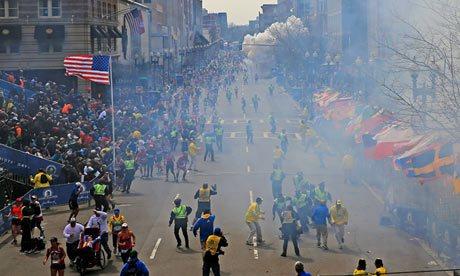
Image from http://www.theguardian.com
A recent Congressional report reveals that the Russian Intelligence Agency FSB repeatedly warned the FBI about Tamerlan Tsarnaev, one of the Boston Marathon suspects. The first warning occurred as early as March 2011, over a year and a half before the bombing and linked Tsarnaev to radical militant Islamists.
A follow-up investigation by the FBI with state and local authorities interviewed Tsarnaev but did not use any further surveillance, not recognizing any major threat. It did, however, enter Tsarnaev into a TECs ”Hot List” database that would trigger an alarm whenever Tsarnaev entered or left the nation.
But in July 2011 the investigation failed to find any significant links to terrorists. A second note by Russia restating the previous warning but adding that he was “armed and dangerous” surfaced, prompting a second TECs entry, this time as “Tsarvayev,” saying that his detention is mandatory if he happens to enter or leave the United States.
Congressional authorities now say that Tsarnaev traveled to Dagestan to receive Jihad training, but was not of high enough priority because of the hundred other names on the “Hot List” traveling from New York City’s JFK to Moscow. On the flight back, however, the added “y” meant that Tsarnaev entered the United States without alarm. Between the six months of training in Dagestan, the second note ended up replacing the then-expired first note with the “Tsarnaev” spelling.
The rest, as they say, is history. On April 13, three bombs killed 3 people and injured 260 others, marking the Boston Marathon bombings as a day of tragedy. Tsarnaev was killed in a police confrontation while the other suspect, his brother Dzhokhar, now faces the possibility of the death penalty if convicted.
Almost inevitably, the repeated failures to detain Tsarnaev raise questions of security. Could added security have stopped the incident, and if so, does that make some sacrifice of “civil liberties” more legitimate? Or does it instead raise concerns about the effectiveness of agencies like the FBI as well as security measures designed to protect citizens? In other words, should the United States focus on adding security measures or improving existing ones?

